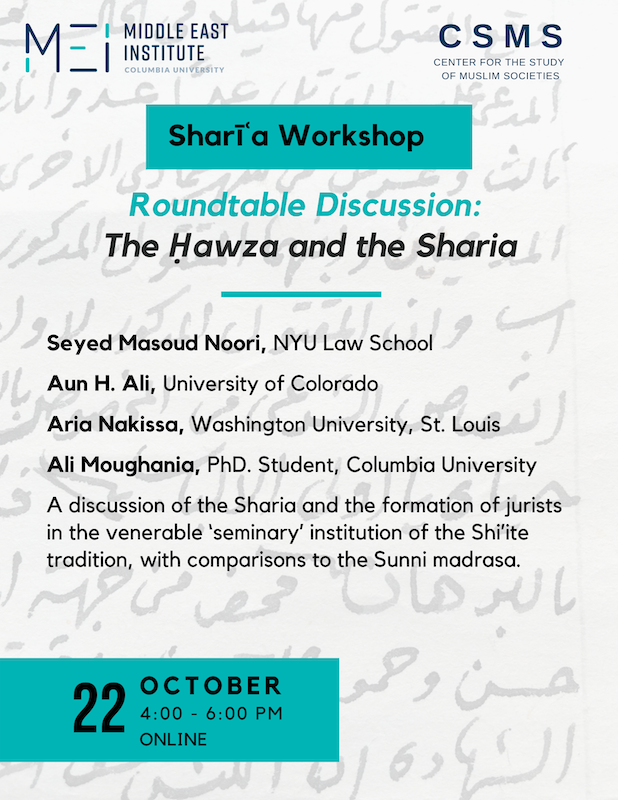February 18: Shari'a Workshop: Sahih al-Bukhari's Criteria
Thursday, February 18, 2021, 4:00 PM EST
Register for the Zoom webinar here.
In this workshop, Issam Eido and Mohammed T. Safi will discuss their paper entitled “Ṣaḥīḥ al-Bukhārī's Criteria: An Epistemological Perspective.” In an innovative study of the Hadith corpus, the early records of statements and actions that, following the Qur’an, represent the second “source” for the Sharia, the authors consider connections between Islamic methods and conceptions and those of contemporary western thought on “testimony." They will be joined by Jonathan Brown, Scott Lucas, and Asma Sayeed.
Download article here.



